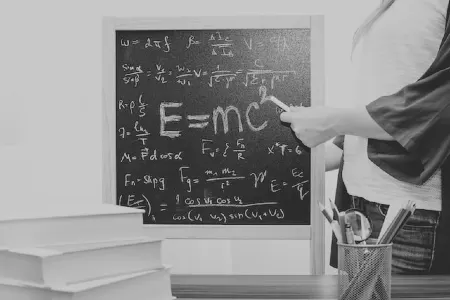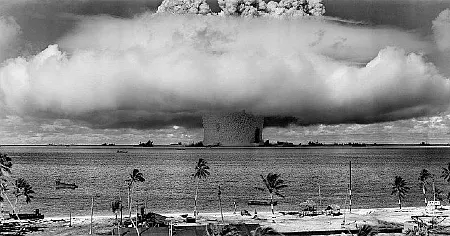#Physicsandscience
Explore tagged Tumblr posts
Text
Albert Einstein: A Revolutionary Thinker

Introduction
Quantum mechanics is the branch of physics that studies the behavior of matter and energy in the presence of an observer. It is the foundation of modern physics and the theory of wave-particle duality. OMG did you understand that description of Quantum Physics? Probably not but in its simplest form, it's the physics that explains how everything works.
Who was Albert Einstein and What Did he Do?
Albert Einstein was born in 1879 in Ulm, Germany. He didn't speak until he was four and didn't read until he was seven, but he always had a great love for learning. He eventually dropped out of school and started working in a patent office. In his spare time, he thought about science and did experiments. He is best known for his theory of relativity, which has revolutionized our understanding of the universe. He also developed the famous equation E=mc2, which has been dubbed the “world’s most famous equation.” Einstein’s contributions to science are vast and have had a profound impact on the world we live in today.

Victorian classroom. Image by Belinda Fewings. Unsplash.
Early Life and Struggles
Albert Einstein was born in Ulm, Germany in 1879. His father was a salesman and his mother was a homemaker. When he was four years old, his father showed him a compass. Albert was fascinated by the way the needle always pointed in the same direction, regardless of which way the compass was turned. This experience would later play a role in his theory of relativity. Albert attended a Catholic elementary school and then a humanist gymnasium. He showed an early interest in science, but he also loved music and played the violin. In 1895, Albert's family moved to Milan, Italy to escape the political turmoil in Germany. Albert stayed behind to finish his schooling, but he soon joined them in Italy. Albert hated the strict discipline at his new school and decided to drop out before graduating. This decision would have profound implications for his future career. In 1902, and without a diploma, Albert began working at the Swiss Patent Office in Bern. He found the work to be monotonous but he enjoyed the intellectual stimulation of reading scientific papers during his lunch breaks. In 1903, Albert married Mileva Maric, a Serbian physicist. The couple had two sons, but their marriage ultimately ended in divorce. To further his studies and without a diploma, Albert could not attend university in Germany. He then decided to start studying at the Swiss Federal Polytechnic to further his education. In 1900 he received a bachelor's degree. After his degree, he enrolled at the University of Zurich in Switzerland, where he studied physics and mathematics. In 1905 he got his Ph.D., and in that same year published four groundbreaking papers that changed the course of physics forever. These papers introduced the concepts of special relativity, mass-energy equivalence, and quantum theory.
The Social and Political Impact of His Work
Albert Einstein's work had a profound social and political impact on the world. He developed the theory of relativity, which challenged traditional ideas about space and time. His work also helped to pave the way for the development of nuclear weapons. In addition, Einstein was a strong advocate for peace and social justice. He spoke out against violence and xenophobia, and he championed the rights of workers and minorities. As a result of his work and his activism, Albert Einstein is considered one of the most influential figures of the twentieth century.

Theory of relativity. Photo by Jeshoots. Unsplash.
What Breakthroughs Did He Make in Science?
Albert Einstein is one of the most renowned scientists of the twentieth century. His work in physics changed our understanding of the universe, and his name has become synonymous with genius. However, Einstein's contributions to science went beyond just his groundbreaking theories. He also made important discoveries in other fields, including astronomy and optics. For example, in 1911 he predicted the deflection of light by massive objects, a phenomenon that was later confirmed by observations of a total eclipse. Einstein's work in Optics also led to the development of fiber optics and holography. In addition to his scientific achievements, Albert Einstein was also a gifted mathematician. He made significant contributions to the field of mathematics, including developing a new way of understanding spatial geometry. Albert Einstein's legacy is one of immense intellectual achievement, and his impact on science is still felt today.

Chalkboard equations. Photo by Dan Cristian Padure. Unsplash.
His Later Years and Legacy
In his later years, Albert Einstein continued to push the boundaries of knowledge, seeking to uncover the hidden secrets of nature. His work took him on a quest to discover a unified field theory, a grand attempt to find a single equation that would describe all the forces of nature. Although he was not successful in this endeavor, his work laid the foundation for future scientists. He also became an outspoken advocate for peace, using his platform to speak out against the proliferation of nuclear weapons. After he died in 1955, Albert Einstein's legacy lived on. His theories continued to be developed and expanded upon by subsequent generations of physicists. Today, Albert Einstein is widely considered to be one of the most influential scientists of all time.

Professor teaching students. Photo by Tra Nguyen. Unsplash.
What We Can Learn From Him Today?
One of the things that we can learn from Albert Einstein is the importance of thinking outside the box. He was not afraid to challenge conventional ideas, and his willingness to question accepted wisdom led him to make some of the most significant discoveries in physics. In addition, Albert Einstein emphasized the importance of simplicity. He once said, Everything should be made as simple as possible, but not simpler. This philosophy can be applied to many areas of life, and it is a useful reminder that sometimes the simplest solution is the best. Finally, Albert Einstein was a strong advocate for peaceful coexistence. In a time when the world was on the brink of war, he urged leaders to resolve their differences through diplomacy rather than violence. Today, as we face many challenges as a global community, Albert Einstein's words still ring true. His legacy provides us with an important reminder that peace is possible if we are willing to work together.

Nuclear testing at Bikini Atoll. Photo by WikiImages. Pixabay.
Conclusion
Albert Einstein was one of the most influential scientists of the twentieth century. His work in physics changed our understanding of the universe, and his name has become synonymous with genius. However, Einstein's contributions to science went beyond just his groundbreaking theories. He also made important discoveries in other fields, including astronomy, optics, and mathematics. Although he faced many challenges during his life, Albert Einstein never gave up in pursuit of knowledge. He was always willing to question accepted wisdom and explore new ideas. As a humanitarian, he was a strong advocate for peaceful coexistence. In a time when the world was on the brink of war, he urged leaders to resolve their differences through diplomacy rather than violence. Today, as we face many challenges as a global community, Albert Einstein's words still ring true. His legacy provides us with an important reminder that peace is possible if we are willing to work together. Sources: THX News, Wikipedia, Physics Today & Stanford. Read the full article
#AlbertEinstein#AlbertEinstein'swork#Globalchallenges#Legacyanddiscoveries#Mathematicscontributions#Opticsinphysics#Peaceadvocacy#Physicsandscience#Pursuitofknowledge#Specialrelativitytheory#Theoryofrelativity
0 notes